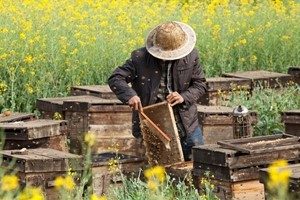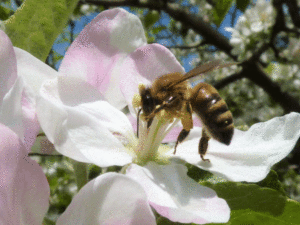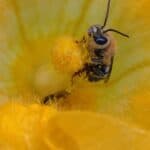How to protect bees from pesticides
Broad spectrum pesticides can be a great way to control insects around residential properties, businesses and farms, but they can also affect insects that aren’t causing problems. In fact, bees and other pollinators can be very susceptible to these types of chemical pest  control methods. This can pose a serious problem, because bees are an important part of keeping crops healthy. Here’s what people can do to protect bees from these harmful effects:
control methods. This can pose a serious problem, because bees are an important part of keeping crops healthy. Here’s what people can do to protect bees from these harmful effects:
Why Pollinators are Important
Pollinators such as bees are important because they help wildflowers and crops bloom and produce the food that sustains the country. Without them, crops wouldn’t produce as much food and people would go hungry. While bees are perhaps the most well known pollinators, the U.S. Environmental Protection Agency noted a few others, including:
- Butterflies.
- Beetles.
- Birds.
- Bats.

- Lizards.
- Ants.
The EPA reported that several factors can diminish pollinator populations. Aside from chemical pesticides, bacteria and viruses can harm pollinators. Similarly, habitat destruction can lead to poor foraging ground and thus poor diets, which can lead to low populations. According to Pesticide Action Network, habitat loss is often the result of overuse of broad spectrum herbicides. As more land becomes developed, it’s likely that local bee colonies will have a harder time finding a varied, nutritious diet. This in turn can make them more susceptible to disease.
Colony Collapse Disorder
First detected and classified in 2006, Colony Collapse Disorder is when the majority of worker bees die off suddenly, leaving the queen and her brood alone. In that condition, the colony cannot sustain itself and the brood quickly dies off as well. According to the EPA, the primary symptom of CCD is a lack of dead bees near the hive. In other words, the worker bees go out to forage and pollinate, get exposed to a deadly substance and fail to return to the hive.
Preventing CCD
Communication is one of the key ways to prevent CCD. Purdue University reported that farmers should communicate with local beekeepers before spraying broad spectrum pesticides. It can also help to only spray chemicals after dusk, when foraging bees have returned to the hive for the night. Organic means of pest control can also prevent bees from being exposed to harmful chemicals. By keeping lines of communication open between growers and beekeepers, many future instances of CCD can be prevented.



2 comments